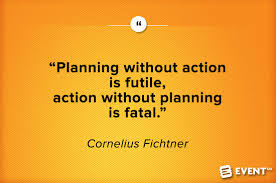Many people who feel threatened when negotiating try to ‘win at all costs’ without thinking how they are about to damage, or possibly destroy a relationship.

That may be ok when negotiating to buy a house or a car since most times, the relationship you have with the salesperson is finite and less important. But when we have a disagreement with someone we care about, emotionally or instrumentally, the relationship will be damaged if anyone believes the agreement was unfair or that they’ve been taken advantage of.
Part 1 of 2: The price people pay when they try to win at all costs.
Part 2 will follow part 1 as you scroll down this page to “The Huge Cost of Being Right.”
All conflicts will be resolved, sooner or later, satisfactorily or not. An A bomb, real or metaphorical, may be a preferred solution for some people.

Those people believe that using whatever power they have at their fingertips justifies any costs. To them, the end justifies the means if they get what they want.
Knowledge is power, and preparation is all. So file this away so you can prepare to manage yourself next time someone attacks you over a difference you have with them.
When facing conflicts, we always decide whether we will avoid, fight, or collaborate so all those involved are relatively satisfied with the outcome.
When you have a difference with anyone over anything, consciously or unconsciously, you will decide on the importance of that relationship when you disagree; however, when people are afraid of losing anything important to them, including pride or status, fight or flight can take over so they fight harder to win. Since we we negotiate many times daily, we may have to decide what we want future relationships to look like several times a day.
If we want to sustain and nurture any relationship, we need to respond mindfully, not aggressively.

Always remember that people also negotiate in their heads, with themselves? “Should i agree,” “Is he serious,” “Is this the best deal i can make?” What they decide in their heads will dictate the reaction you will face.
So if another person’s decision doesn’t work for me, if i want to nurture the relationship, i need to find out how they made that decision. It is not an end, it is the beginning of another phase during a collaborative resolution process.

How you react or respond will ultimately decide what your relationship with that person will look and feel like in the future.
Herb Cohen, the Author of “You Can Negotiate Anything” told us his father believed that an effective negotiator “left every negotiating table having given more than she received.”
But many negotiating students often resisted this theory, until they understood how they could give up something less important to them, but which was more important to the other negotiators.
So the key to a successful negotiation is to find out what’s important to everyone negotiating, and why. Wars and strikes, in fact all escalated disputes, are fundamentally failures to negotiate effectively.
You can win a war, but lose the peace when you win at all costs.

“The Huge Cost of Being Right.”
The following article, The Huge Cost of Being Right was first published in the January, 2008 edition of Douglas Magazine, Victoria's Business Magazine. This article was also subsequently republished in several on-line human resource and business sites.© Joseph Ravick -
The reality is the bottom line when it comes to resolving conflicts and disputes at home, in business, and everywhere in between.

Like it or not, conflict between people is inevitable, yet fair and acceptable resolution is not. As Roger Fisher, William Ury, and Bruce Patton wrote in their influential book, Getting To Yes, “Whether in business, government, or the family, people reach most decisions through negotiation.”
As was so often observed in many of the conflicts we were asked to help resolve at Appropriate Resolutions, the following three teams of business owners had to make vital decisions when negotiations failed. The escalated disputes then took on a life of their own, as disputes often do.
Names and some details have been altered to protect confidentiality.
Home-based business vs. strata council
Bill Jones wasn’t worried when illness waylaid him; optimistically, this 45-year-old entrepreneur decided to refocus his time and energy on a home-based business. He would market previously owned treasures through an internet auction site with the help of his wife and teenage son. Their townhouse almost paid for, Jones thought he was secure in his home office and in-house showroom-warehouse. Until one of his neighbours objected.
Bill’s strata council told him to cease and desist, and in that moment of heightened stress and anger, all Jones could see was a long battle ahead with little guarantee of success. With little thought for the consequences, he didn’t comply with or even answer the directive, generating a predictable reaction from Charles Stewart, the council president.
From there, the dispute became increasingly personal, pitting neighbour against neighbour.
A court finally settled the dispute and everyone walked away tense and angry. Jones and his family ultimately decided to move, but significant residual tensions remained between some neighbours. So who won?
Everybody lost, and unnecessarily. Since we all negotiate daily, one way or another, we need to remember Sun Tzu’s 2,500-year-old wisdom, and apply it to our conflicts.
“The smartest strategy in war is the one that allows you to achieve your objectives without having to fight.”
In a case with similar issues, home-based businesswoman Beth Brown spent time with the strata council chair to reach a mutual understanding first about what was important to each party. Agreeing that they both valued community spirit and neighbourliness made it easier to resolve their differences collaboratively.
Beth Brown assured the council that she would make sure that clients would no longer be coming to her home and wandering around the property.
Beth thought that she could carry on her business successfully, and she was right. The added benefit was that she remained friends with her neighbours and co-owners, some of whom even became her clients, ironically.
Partners’ blow-up over ‘widgets’
Jon and his dad William White joined with Samuel and Patricia Green to realize their common dream of owning and managing a small manufacturing business. For the first five very busy years, all worked diligently as friends and colleagues. Father and son marketed the products and handled administration, while Sam and Pat Green managed production and distribution.
Then one day, a verbal explosion between two of the partners exposed an underground conflict. Ostensibly over administrative practices, the flare-up quickly deteriorated into arguments about how hard each worked. The partners were shocked by each other’s vehemence and aggression.
Clearly what had been percolating below the surface had now boiled over, bringing their company to the brink of disaster. When their bank manager, also their friend, heard a brief description from William White about what was going on, he recommended a transformational mediator, and suggested my name. Their divisive differences had by then invaded and disrupted all parts of the owners’ personal and professional lives, so they all quickly agreed.

I began by helping the four partners to acknowledge and to value their common dream. This motivated them to challenge the “conflict monster” — their common threat — instead of each other.
Curiosity replaced judgment as they collaboratively problem-solved and established open, active lines of communication and a conflict-resolution process for future differences.
Ten years later, their successful business had thrived, growing beyond what even they had envisioned. The experience of resolving that first big blow-up had helped them strengthen the foundations of their relationships, which undoubtedly enabled their successes.

ALTERNATIVES TO A WAR OF WORDS
The list of potentially devastating disputes is almost endless, but broken contracts, malpractice & flawed work, outstanding debt, and interpersonal disputes between partners are all on the current “hit parade” of disputes ending up before judges or arbitrators. If you doubt that dispute resolution is a fast-developing growth industry, look under the “Lawyers” section of any city’s yellow pages directory.
Whatever the details, the bottom line on conflicts is that when differences have not been resolved to everybody’s relative satisfaction, people will do whatever it takes to win a “fair-to-them” remedy.
Since Fisher and Ury first published their findings from the Harvard Negotiation Project more than 25 years ago, , much has been learned about conflict, how it grows, and how people can communicate effectively to manage and resolve their differences.

When conflicts evolve into malicious disputes, as the sadistic captain of Road Prison Gang 36 said to Paul Newman in the 1967 movie, Cool Hand Luke, “What we got here is a failure to communicate.”
Since all conflicts will be resolved, sooner or later, satisfactorily or not, we all have to decide whether we will avoid, take the war-like adversarial road, or whether we will collaboratively negotiate so everyone who cares will get what they need.
So next time you face a conflict, hit the pause button, then choose an appropriate resolution process, consciously.
Don’t be afraid to tell those with whom you disagree what you’ve decided, what you want to do, and how important the relationship is to you?
If you care, the cost of defeating the other person may not be worth what the victory will cost you.








You must be logged in to post a comment.